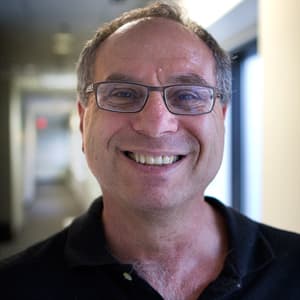Advertisement
At Paris Climate Summit, Cities Seen As Key In Fight Against Global Climate Issues
Resume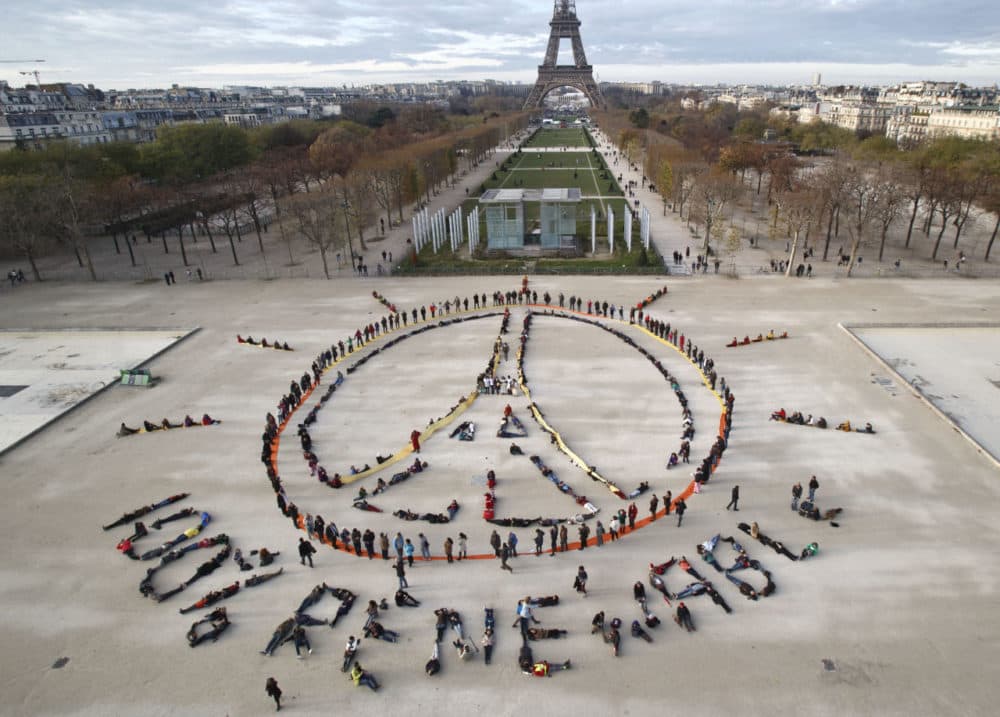
Even if you've never been to Paris, the cab ride from Charles de Gaulle Airport to the center of the city would likely be a familiar scene to most Bostonians — it's a lot like Boston's southeast expressway during rush hour.
Traffic congestion is thick, forcing vehicles to move at a snail's — or perhaps an escargot — pace here. The morning drive-time radio, French style, is on, and one of the main topics this week is, of course, climate change.
World leaders are meeting for the second week in Paris in an attempt to negotiate an international agreement to deal with climate change, and urban areas are at the frontlines of the fight.
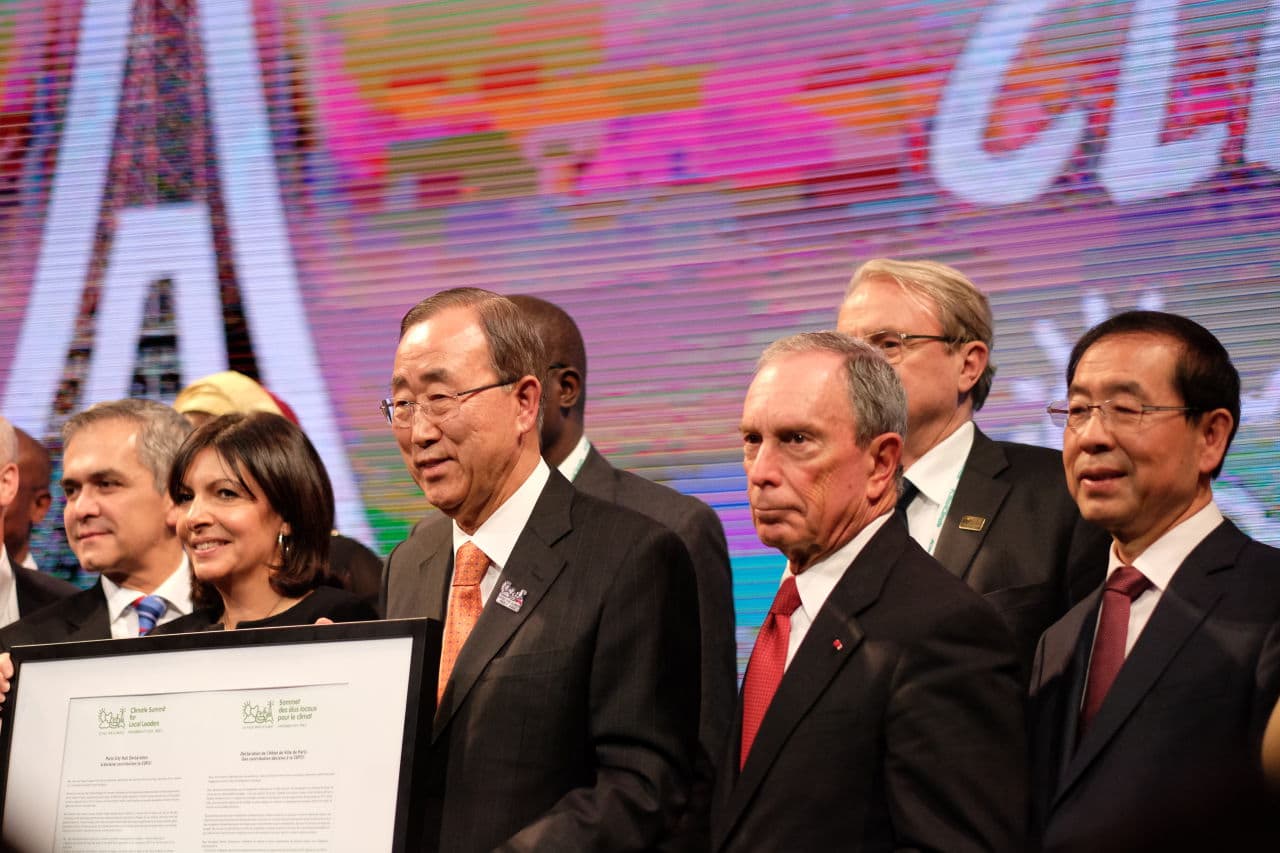
Tackling Climate Change By Thinking Globally, Acting Locally
At the ornate Hotel de Ville — City Hall in Paris — the mayor of Paris has been playing host to officials from cities around the world.
Featured speaker Jeffrey Sachs, director of Columbia University’s The Earth Institute, told local leaders that national government officials negotiating a global climate treaty don’t understand the nuts and bolts of adapting a city’s infrastructure to climate change.
"After the agreement is reached, who’s going to be the first to start implementing that? It’s going to be the mayors at their desks the next morning, because they have to make contracts with utilities. They have to decide where the next road is going to go, how public transports going to work, what kind of vehicles are going to be riding on the streets of the cities," Sachs said. "So literally where the rubber hits the road is the world’s cities."
Boston is among those cities leading by way of example on how a local government can prepare for a future in which climate change requires a transformation of urban infrastructure.
Austin Blackmon, Boston’s chief of environment, energy and open space, came to the summit in Paris to receive a prestigious C40 award — beating out Melbourne and New York City in an award category that praises a city's ability to engage residents in planning for climate change.
"The city of Boston was very, very thankful to win the award," Blackmon said. "We hope in future years other cities will get recognized for copying those ideas."
It's a quick five-hour flight from Boston to Paris, 3,235 miles as the seagull flies. A few days before he left for Paris, I met with Blackmon in Christopher Columbus Park, a few feet away from Boston Harbor.
When it comes to climate change, it's clear the planet is in the same boat. However, different cities face difference challenges.
"Hopefully coming out of Paris we’ll have an agreement that will incentivize all of the nations of the world to take drastic action, but if we don't do enough then there’s a chance that areas like this will be subject to flooding on a twice-daily basis," Blackmon said.
Boston set a goal of reducing greenhouse gas emissions by 25 percent by 2020 and 80 percent by mid-century. The city is on target, with a 17 percent reduction in just a decade. Boston pioneered an innovative funding mechanism to retrofit its 321 municipal buildings. The city used savings from energy efficiencies to pay off loans for the improvements.
Now, Boston is helping cities of a similar size in China prepare for climate change.
"That’s really, really important, because as much work as we’ve done here in Boston — as great as that is — if we can help Chinese cities avoid a ton of CO2, the number of people that live in China on a per capita basis, if we can influence that change, that affects us globally as well," Blackmon said. "And so we can really multiple our impact."
Boston's Energy Past And Future Through In One Scope
The effects of climate change are not abstract or academic — they’re real. And they’re happening now. From a balcony at the Wheatley Building found on the University of Massachusetts, Boston campus, a university dean explains how the results of climate change can be seen with ease.
"What I love about this view is that it captures the story of climate change in almost all of its pieces," said David Cash, dean of the McCormack Graduate School of Policy and Global Studies. He was also preparing to head to the climate summit when we met.
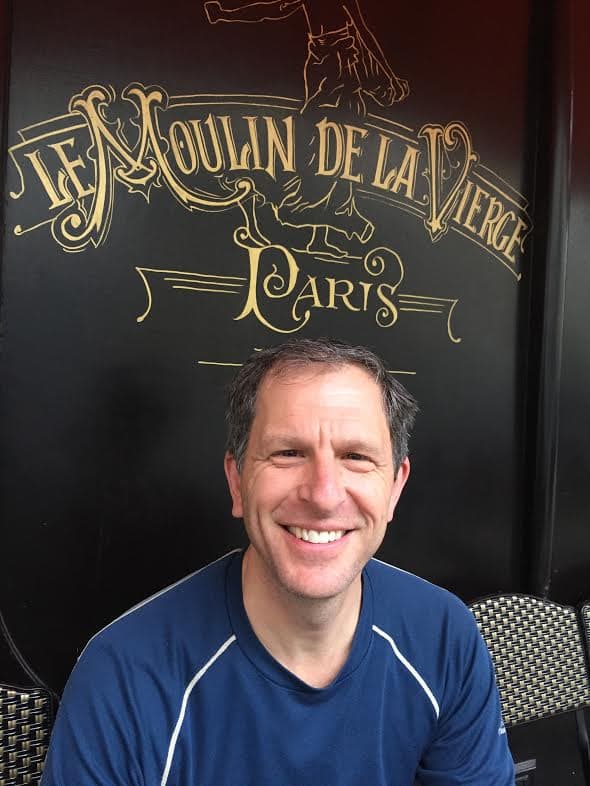
"So here we are looking at the bay overlooking Morrissey Boulevard, which already is flooding at high tides on a regular basis," he said. "You can hear that when you hear the morning traffic reports, and we’re at ground zero where the impacts of climate change are going to be."
Cash sets up a small telescope, and with it, the past, present and future of the Greater Boston area's energy supply appears from the balcony. Nearby is National Grid's colorful liquefied natural gas tank. Natural gas burns cleaner than oil or coal, but it's still a fossil fuel. It's used to generate 45 percent of the region's electricity. But Cash said it's a transitional bridge to a renewable future.
Just behind the tank is a small solar installation. Statewide, solar energy has increased 300-fold in just eight years.
Further out are two commercial wind turbines in Hull, and Cash predicts soon there will be offshore wind farms and electric cars with "smartchips" driving roadways.
"So when you plug them in at night, that chip will say 'only fill my battery when the price of electricity is below 3 cents. And when they park, you're going to be able to plug in there and that chip is going to be able to say 'sell back to the grid when it's 7 cents a kilowatt hour.' So you're going to be making money.
Call it climate change capitalism. Today, there are 5,000 clean energy companies in the New England area, employing roughly 100,000 workers.
"That’s what’s been incredible about this," Cash said, "is that we’ve been investing in ways that are saving people money. So this whole notion that you can’t move to the clean energy future without hurting the economy is a lie. Moving to the clean energy future is one that will bring economic benefits and economic advantages."
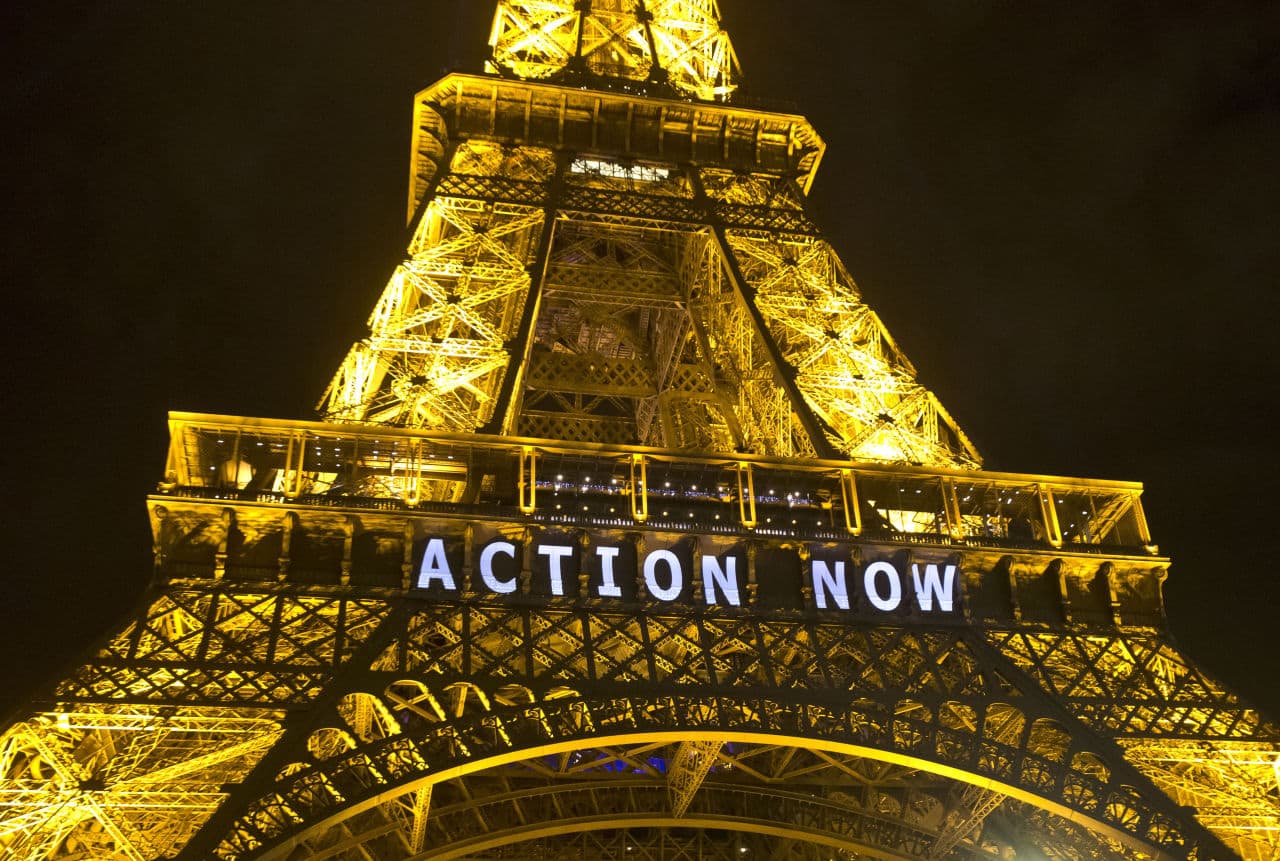
By evening in Paris, some booksellers along the Seine have shuttered their shops. In the distance, the Eiffel Tower is aglow with 20,000 energy efficient bulbs powered in part by four vertical wind turbines hidden in the steel lattice, as well as solar panels on the visitor center.
Today, the world’s most visited monument uses 30 percent less electricity than it did a decade ago. By next year, companies that want to provide the City of Light municipality with electricity will have to supply 100 percent of it from green, renewable sources.
WBUR's Bruce Gellerman is reporting from Paris, where he is attending a United Nations-funded climate media fellowship.
This segment aired on December 7, 2015.
